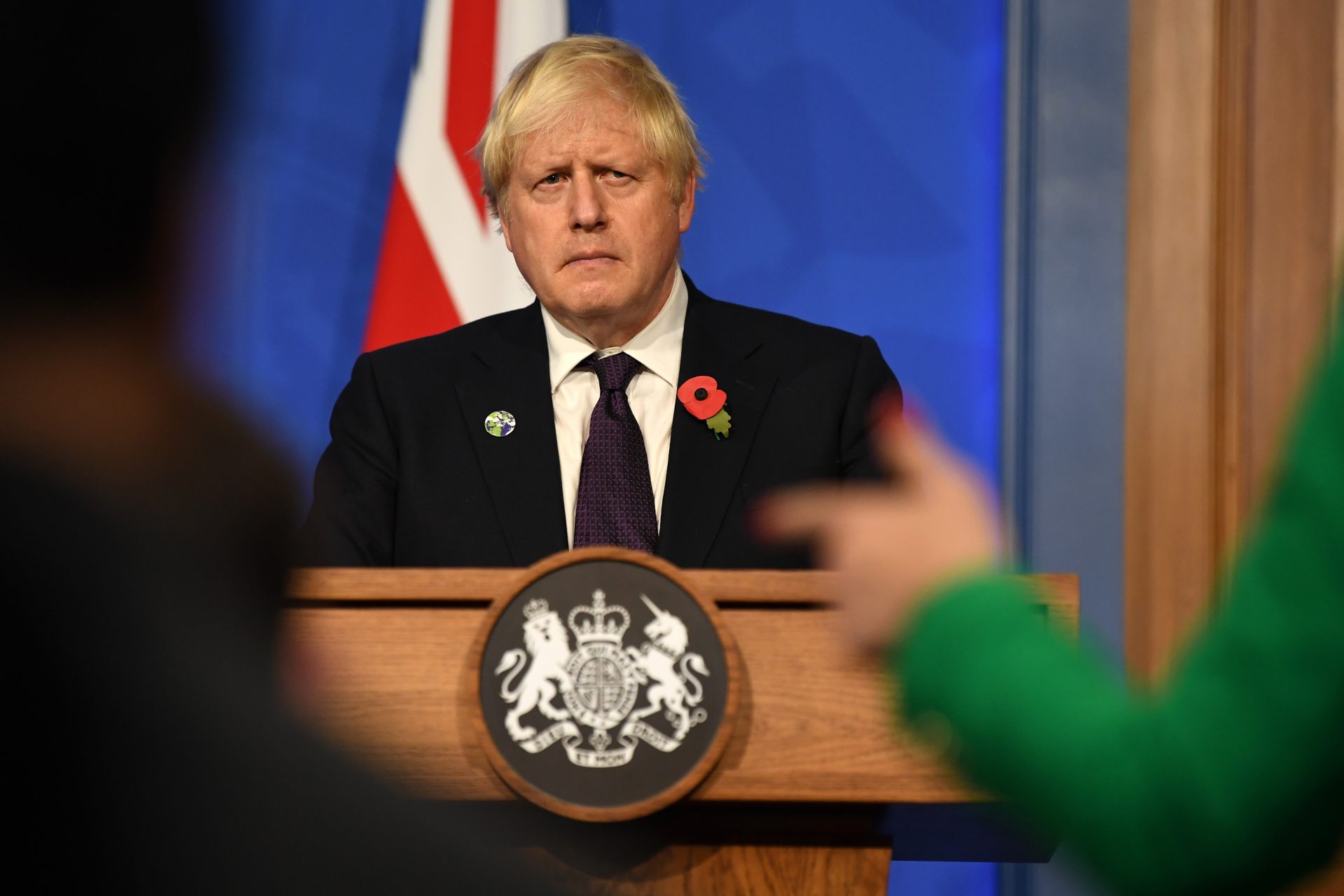Boris Johnson may claim Pericles, the great statesman, orator, and champion of democracy as his hero. But perhaps the cynic philosopher, Diogenes of Sinope, a touchstone for shamelessness, would be a better idol for him.
We have seen in recent weeks how he has quite shamelessly tried to protect Owen Paterson after he broke lobbying rules. Johnson seemed unconcerned at the damage this would cause to the public perception of politicians and of our parliament. John Major was not the only one to see this as politically corrupt.
A few days later Johnson was walking through a hospital without wearing a face mask, despite strong recommendations that he should wear one, again without shame. He should, on realising his mistake, have been contrite. Instead, his lackeys appeared on the media defending his action using sophistry. Johnson’s time as prime minister has been characterised by shamelessness. There are no signs that this is about to end.
Shame is the emotion that we feel when we have broken social norms for good behaviour and other people witness this. In contrast, we feel guilt when we have broken some internalised rule. Our guilt is within us and comes from a feeling that God, our conscience, or something similar has a window into our soul and finds us wanting.
Shame implies an audience. It’s other people seeing us that triggers shame.
In Being and Nothingness, Jean-Paul Sartre imagines a voyeur watching a woman through a keyhole. He is completely absorbed in the scene until he hears footsteps behind him. At that instant he becomes acutely aware of being seen, of “the burning presence of the Other’s look”, of being judged.
He is filled with shame. No longer immersed in his subjective experience he is a “looked at look” seen from the standpoint of the world.
If it’s true and not disinformation, that Joe Biden released a loud and long fart in the presence of Camilla Parker Bowles whilst at the COP26 summit, he too no doubt felt not a little shame. Shamelessness is the trait of those who are not bothered what others think of them.
Shameless people just go about their business indifferent to social norms. They jump queues, break rules, make a special case out of themselves, because their behaviour isn’t curbed by the usual social emotions and constraints, because they don’t have a strong internalised sense of what proper behaviour is, and don’t care at all about that. The Look of the Other bounces off them without effect.
It can be very disconcerting to meet a shameless person. They defy all our expectations about good behaviour, but unlike someone who just has a bad day and then comes to realise this, they never regret their actions.
But what’s all this got to do with Diogenes, the outspoken philosopher sometimes known as ‘the mad Socrates’? Diogenes used to wander around the marketplace of Athens with a lit lamp in full daylight, and would respond to queries about what he was doing with “I’m looking for an honest person, and haven’t found one here yet”. He was a cynic, a term derived from the Greek word κυνικός meaning dog-like.
The Cynics were dog-like because they did many of the things dogs do in public, including copulating and defecating. Once when some boys were teasing Diogenes, calling him “dog”, he raised his leg and peed on them to reinforce the point.
For him not feeling shame was a matter of principle – he rejected social conventions and didn’t feel at all bound by them. Nature was his guide. He masturbated in public, commenting that he wished his desire for food could be as easily satiated as his desire for sex by rubbing his stomach.
As far as I know, Boris Johnson hasn’t been caught out masturbating in public yet, but much of what he has done in plain sight defies reasonable expectations of opprobrium and decency for a prime minister, or indeed for anyone.
In contrast to that shamelessness, Diogenes’ was part of a broader philosophical and moral stance. He watched a mouse that seemed quite content with a few grains, and reasoned that human beings could and should be content with very little too. He lived on the bare minimum ever after.
In contrast, Boris Johnson seems simply to have rejected conventional decency in favour of raw self-interest. No moral motivation here, just egoism. Sadly, the burning presence of the world judging him for his self-serving antics is unlikely to affect this shameless clown.



